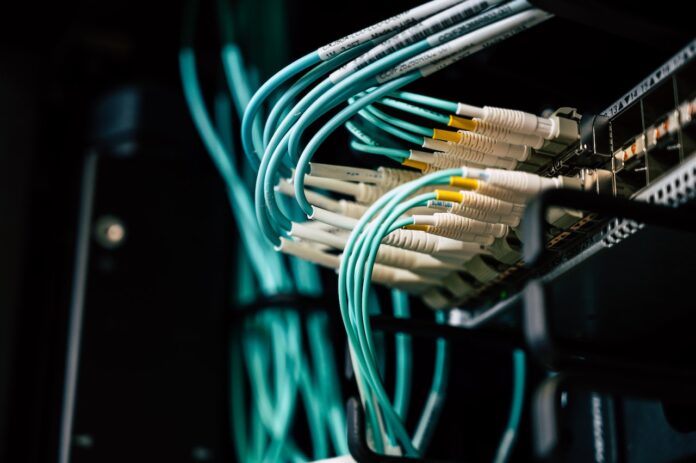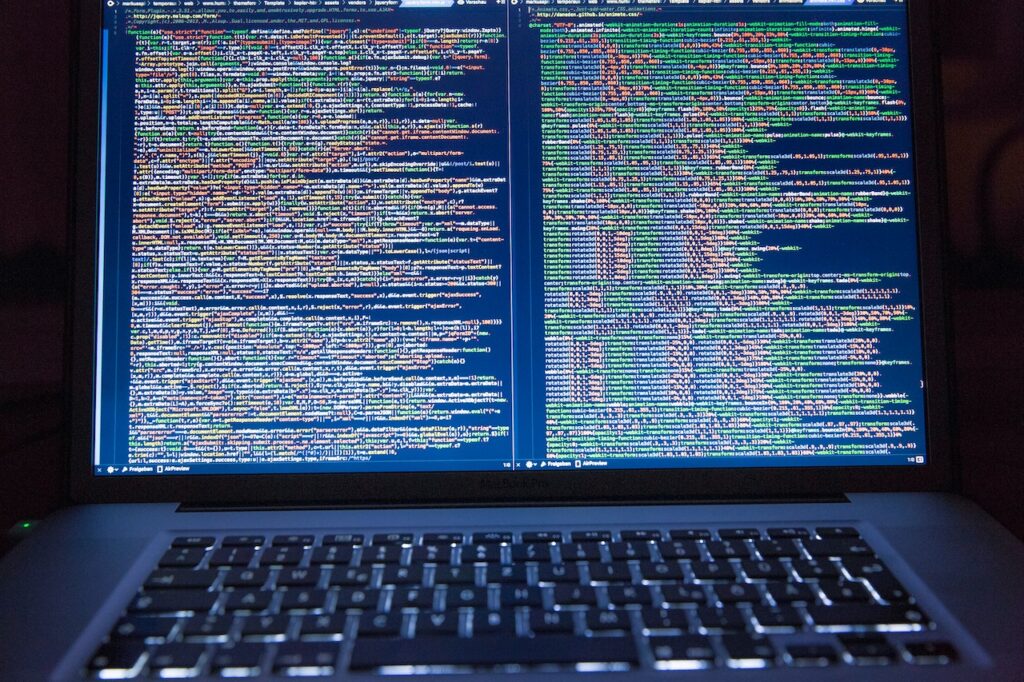
The Internet is omnipresent in today’s society. It is literally everywhere. In parks, in cities, in nature, in stores, in hospitals, on gas pumps – you name it, and internet is there. There are some places in the world without developed internet, but Elon’s Starlink is beginning to resolve that also.
We’re reliant on Internet, like we’re dependent on electricity.
Note: If you are wondering what would happen without electricity, check out this article where we delved really deep into topics of electricity and world without electricity.
Yet, nobody in history even thought about something that we now call the Internet. Most futurists talked about flying cars, really long lifespan of humans (150 years), intelligent robots et cetera. Almost nothing came to be true.
Internet became the biggest thing that no one really predicted. But were there some clues?
Related:
Who Predicted the Internet?

There are some sci-fi movies and novels (before birth of Internet) that could be connected with today’s big network, nonetheless, nobody really predicted something of such a big proportion. Only several people throughout history talked about some kind of computers and network that will emerge in future, yet they weren’t even close to what we now call the Internet and its capabilities.
Marshall McLuhan is often mentioned as “The Man Who Predicted the Internet.” However, he did not exactly predict it either, but he came closer than anyone to understanding our current world of technology.
Namely, in 1962 McLuhan published a novel called The Gutenberg Galaxy. In this novel, he said that human history could be separated into four different chapters: the acoustic age, the literary age, the print age, and the electronic age. McLuhan alleged this electronic age would be home to what he called a “global village” or a space where technology enabled spreading information to anyone and everyone.
In his next book, Understanding Media, he extended his theory to show that the method of communication rather than the information itself would become most important thing in electronic age.
Now, of course the modern Internet is very much different than what McLuhan predicted but some basic principles are here.
Unfortunately, his theories were criticized and not very welcomed in academic circles. That says a lot about academic circles not only then, but also now. Any new or controverse ideas are mostly not accepted nor welcomed in academia. Brothers Eric and Bret Weinstein talk a lot about that issue these days.
There are couple of other names (mostly sci-fi authors) who described some situations and scenarios which could correlate with early prediction of The Internet. Edward Page Mitchel, E.M. Forster and even Mark Twain come to mind. Twain’s story “From The London Times In 1904” introduces a machine called the Telectroscope, defined as a “limitless-distance” telephone that allows the user to view events all around the globe in real-time, as well as interact with other people there.
Interesting concept for sure, that Telectroscope, and its resemblance of internet possibilities.
So, even though no scientist or futurist predicted Internet as it is now (not even close), we have it. And we have it big time. Almost everything that we know of today is here because of the Internet.
But how did it first start?
Really Brief History of the Internet

In 1969, the first version of “light” internet had been formed and configured as a network (ARPANET) between four different so-called nodes: UC Santa Barbara, UCLA, University of Utah, and Stanford Research Institute.
In 1971 we witnessed the first email message.
Then in 1983 new protocol was introduced to enable various kinds of computer to “talk” to each other. This protocol was named TCP/IP, and many authors, scientists and historians consider this date (January 1, 1983) as official birth of internet.
Fast forward to 1989 when Tim Berners Lee invented World Wide Web. This basically enabled usage of internet for all people.
Over the years number of web sites grew, computers got stronger and more affordable and soon majority of people got access to internet. At first it was a terribly slow and not really pleasant experience. But with better computers, new protocols, and faster communication networks we got to where we are now – people are TikToking across continents in real time and doing stupid dances which are seen by billions of people.
Now, disregard the last remark as some kind of joke. It was meant to paint a picture how internet is today used for everything imaginable – from stupid dances on TikTok to navigating satellites into space.
Therefore, it is hard to imagine what would happen without internet even for a day. But that’s what we to here at CuriousMatrix.com – we try to hypothesize about different unimaginable scenarios. In exploring the impact of an internet apocalypse, we delve into the potential consequences on communication, commerce, and even personal relationships. Imagine a world where businesses crumble without online transactions, and social interactions are reduced to face-to-face encounters. The drastic shift could lead to a profound cultural transformation, forcing society to rediscover the value of offline connections and local communities.
So, let’s dive into the world without internet and a scenario of internet shut down.
World Without Internet?

Now, here at CuriousMatrix.com we’ve written a lot about such scenarios like World without electricity, World without laws or World without wars and this one (Internet) is very similar to one of those. So similar that it could be almost replicated. Of course, we’re talking about article “World Without Electricity”, so if you haven’t read it yet we’d recommend diving into that one, as many scenarios could be replicated.
Why you may ask?
Well, because as a society, we are helpless without electricity, and the same goes for internet. Without electricity, as well as without internet – almost nothing can work properly in today’s world.
So, even though it wasn’t so long ago that we lived completely without internet, today’s situation is completely different as internet is tied to all fabrics of our society.
Namely, 25 years ago (1995), less than 1% of the world used internet. And today a total of 5.56 billion people around the world use it, which is equivalent to circa 64 percent of the world’s total population.
So, all those people and countries would be impacted in case if internet shut down.
Therefore, let’s categorize potential impact in different industries and segments of society.
Technology Without the Internet

Reasoning behind this segment is almost self-explanatory. Most technology devices and services that we use today would not exist without internet. Several years ago, or say 10 or 20 years ago we had many devices that did not need internet to function properly.
Remember first 10 years of mobile phones?
None of them had internet access and if they did it was almost unusable. Then smartphones arrived to the face of Earth and everything changed. Some would say for the better, some for worse, but that’s not the point of this article.
The point is that today’s smartphones are so reliant on the internet (data usage) that without it they would become almost like useless bricks. Sure, you would still be able to use them for making phone calls (in some cases) but who is doing that in these days anyway.
So smartphones gone.
What about apps on smartphones? Well, that’s also self-explanatory, almost none of the apps would function properly (or at all) without internet. You would have some old-fashioned games like Tetris or snake (Nokia 3310 nostalgia) but those again would work only if they were already on your phone. If not – well bad luck – no new games or apps without internet as you can’t download them.
Downloading takes us to another challenge of world without internet. In today’s world everybody is used to downloading everything in matter of seconds. These days will be gone completely in case internet stopped working.
And what about streaming services; Netflix, HBO, Prime – you name it -> GONE.
What would that do to society? To society that is so reliant at constantly looking at their phones, laptops, or TV’s.
Society would become extremely nervous, very quickly, but we’ll cover that in more details in chapters below dedicated solely to the societal impact of internet and its potential downtime.
Ok, so from technological perspective we covered only one part which is mostly used for amusement – different apps on smartphones, streaming services, games et cetera.
What about different parts of technological devices or services which are really critical for people?
Think about call centers for emergency situations, logistical software for transportation and delivery of goods, systems for electrical grid and water supply, cloud databases, cloud services, emails, conference calls, hospital reservation systems… All of that (and much much more) would completely stop working or would work but with very degraded service.
Then, we’re coming to one part that is also important and that is buying and selling goods.
Well, majority transactions in the developed world are card-based transactions. And without internet those transactions would not work, and this leads us to finance and economy part.
Finance & Economy without Internet

In short, without internet, global economy would completely collapse in a matter of months (if not days or even hours). Just imagine the complete blackout of the internet everywhere worldwide. Instantly we’d witness big problems in all financial markets (stock markets, bond markets, derivatives markets, commodities market).
That’s on a macro scale. But what about micro scale and day-to-day shopping? Well as mentioned previously – most transactions would not work. And that wouldn’t be a problem 30 or 40 years ago when people still mostly paid by cash. But today when vast number of transactions are cashless – we’d have a problem. And a big one.
Namely, by Statista.com:
“In 2018, 195.4 billion U.S. dollars in non-cash transactions were carried out in Asia-Pacific, higher than any other region. Europe and North America followed, with 192.2 and 170 billion U.S. dollars in transactions, respectively. By 2023, Europe is expected to exceed North America, while Asia-Pacific was expected to nearly triple the value of such transactions, exceeding 490 billion U.S. dollars.”
That’s a lot of transactions and a lot of dollars. And with trends (or should I say persuasion), that modern countries need to be cashless by year 20xx – we will have even bigger problems in years to come if something happens to internet.
That’s one part of the problem. But what if you’d like to pay with cash? Fine if you have it stored in your socks. But if you’d like to withdraw some money from ATM then you’d see that it is not possible. Well, to be precise – it would depend on ATM and the bank as some still use plain old telephone system” (POTS) lines. But many aren’t and are completely reliant on internet infrastructure.
The same goes for banks. Without the internet you don’t have access to internet banking (obviously), but also in many cases you would not be able to withdraw money by going directly to the bank. Banks are so interconnected and reliant on internet that it would be a complete mess in a matter of days.
All in all – without internet we could forget about economy and finance as we knew it.
So again, complete chaos.
What about modern finance, crypto, blockchain et cetera? Well, even worse. Crypto transactions are based on blockchain which can only function if computers are connected all over the world. And this is impossible without internet. Thus, we can forget about crypto & bitcoin in scenario of internet blackout.
All of that would of course impact day-to-day life of many people around the world.
Day-to-day Life Without Internet

Per International Telecommunication Union around 37 percent of population (or 2.9 billion people) have still never used internet. That’s a significant number in this day and age.
Nonetheless, that does not mean that those people would not be impacted by shutdown of internet. Sure, some people would be completely intact. By that I refer to isolated tribes like Sentinelese in India or Toromona in Bolivia. They are so called uncontacted peoples and it is estimated that there are around 100 of different tribes out there.
So, for sure those people would be entirely undamaged by internet in a case of blackout. Probably they don’t even know that internet exists. However, those tribes consist of only several dozens or hundreds of people.
Other many billions would be very much impacted. On all levels.
As already mentioned, economy and technology would suffer greatly. And almost nothing can function in today’s world without the economy, trade, and technology.
Most certainly food chain would become broken in a matter of days. So empty shelves in stores. Within a couple weeks many people would become hungry as there aren’t many self-sufficient people around the globe. Almost all of us depend on functioning transportation, logistics and food production on a global scale.
All of this is not possible any more without internet. Most large factories are completely dependent on the internet. The same goes for transportation, especially logistics around transportation. For example, knowing exactly how much food (or any other item) is available in different warehouses, and the depending on that information – planning proper loading and transportation routes.
All in all, day to day life would soon turn into complete chaos for majority people around the world. This chaos would be very similar to the chaos we described in our article about electricity.
Sure, humanity would somehow re-structure its priorities and ways of living lives, but chaos would be omnipresent and last for years if not decades.
This would leave people in despair with many psychological consequences.
Total dystopia or coming back to normal times?

As elaborated in previous paragraphs, it is obvious that internet is intertwined in every aspect of our society. It is a core fabric of today’s world. Nearly every aspect of every industry is depended on internet.
We could almost say that we forgot to live without the internet. And many people did forget. According to the latest available data, the average person spends 6 hours and 58 minutes per day on screens connected to the internet. And this time is increasing every year. If the trend continues, perhaps we’ll be constantly connected to screens either via some kind of virtual reality goggles or in capsules like described in movie Matrix.
Latter does not seem so realistic yet but imagine life in 100 or 1000 years. If we don’t destroy ourselves with constant wars and new weapons, we will most definitely develop new technologies that will enable some kind of virtual life.
That life will again depend on internet. Constant internet and amazingly fast internet.
So therefore, for the good of humanity, perhaps it would be good if the internet stopped working. Perchance then, humans would become more aware what is really important in life.
And for sure – it is not important to constantly look at internet connected screens, getting information overload every second of everyone’s life.



























